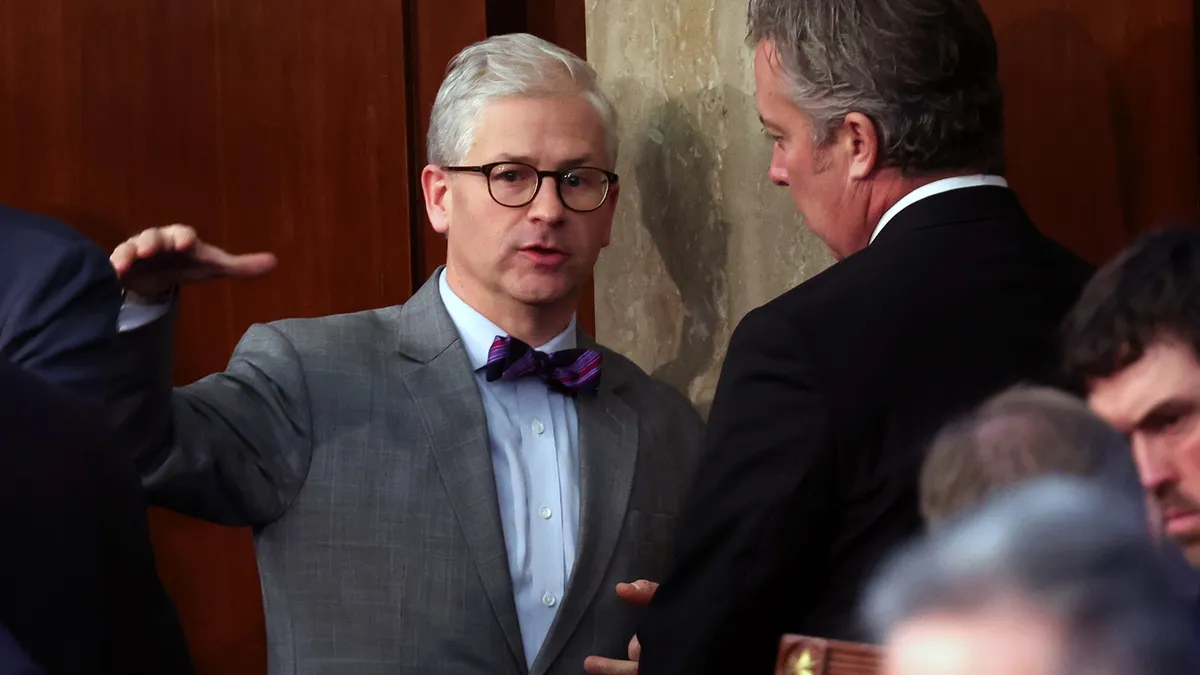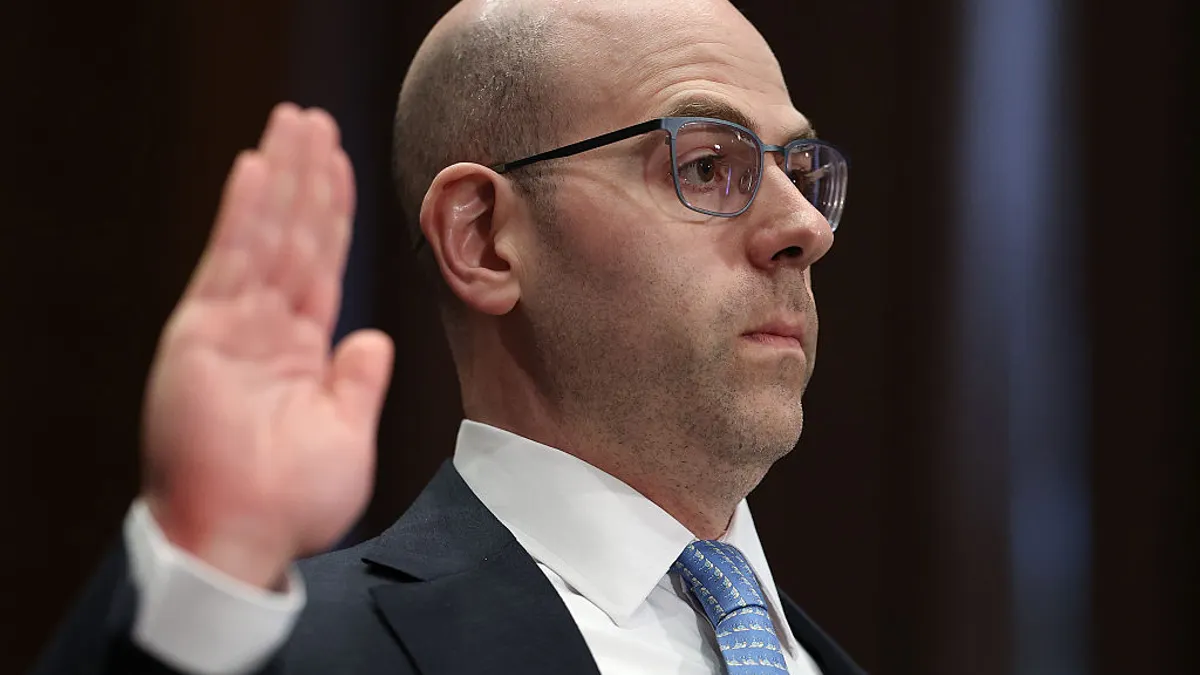The outcry against the Federal Reserve’s capital-requirements proposal saw textbook escalation this week.
First, bank executives bemoaned it.
Dan Simkowitz, Morgan Stanley’s investment-management chief and future CEO contender, called the measure “inconsistent with the real world,” in comments Tuesday to Bloomberg.
”There are certain things which just don't make any sense,” Simkowitz said. “We’re in a period of real engagement.”
The proposed rules “will have an impact on economic growth, and that will affect large businesses and small businesses and their access to capital,” Goldman Sachs CEO David Solomon told Reuters on Tuesday.
“We don't agree with this proposal, and so we're commenting,” he said.
Next, the trade groups attacked the proposal.
“The proposed rule repeatedly relies on data and analyses that [regulators] have not made available to the public,” the Bank Policy Institute and five other organizations wrote Tuesday in a letter to the agency.
The groups are asking the Fed, the Office of the Comptroller of the Currency and the Federal Deposit Insurance Corp. to re-propose the rule, with more data and analysis showing how they arrived at particular solutions.
Now, members of Congress are piling on, too.
Rep. Patrick McHenry, R-NC, and more than two dozen Republican lawmakers penned a letter Wednesday to Fed Vice Chair for Supervision Michael Barr and the heads of the FDIC and OCC, calling the proposal “underdeveloped” and “deficient.”
“This is an economically significant rule but does not contain a meaningful regulatory impact analysis, economic impact assessment, or cost-benefit analysis,” the lawmakers wrote. “The paltry 17 pages of impact analysis — out of the 1,087-page proposal — contain unsubstantiated assertions and citations to studies that often are too outdated to be relevant.”
But McHenry, the House Financial Services Committee chair, and his co-signers didn’t stop there. They accused Barr of creating a workaround to “effectively rescind” 2018 legislation that tailored and eased capital requirements. Progressives have long sought to reverse that measure, the lawmakers wrote, and “this proposal fulfills that partisan goal.”
Barr’s push for a “holistic review of capital standards” was “the first signal that politics would compete with data when it comes to supervising the financial system,” the lawmakers wrote.
The proposal, as written, would overcapitalize U.S. banks, making them less competitive on the global stage, the lawmakers wrote. It would also have a “barbell” effect on the U.S. banking system, they asserted — “with a small number of too-big-to-fail large banks at the top and a scattering of small, often-government-supported institutions at the bottom.”
“This leaves nothing in the middle to provide valued financial services to American families, workers, small businesses and communities,” they wrote.
The proposal dismisses reservations, too, from Republican Fed Govs. Michelle Bowman and Christopher Waller, who issued statements of concern, the lawmakers wrote.
McHenry is asking regulators to withdraw the proposal and replace it “with one based on sound, objective analysis supported by data, not one plagued by politics.”
It would be perhaps easy to argue that the lawmakers’ letter is partisan, too.
But at a House Financial Services Committee hearing Thursday, a Democrat — Rep. Bill Foster of Illinois — criticized the proposal’s lack of transparency, a concern that was laid out days earlier by perhaps America’s best-known banker, JPMorgan Chase CEO Jamie Dimon.
“Details are important since they will undoubtedly have effects on the lending activity, market behavior and internal operations both of the large U.S. banks which will be directly impacted and the other players in the economy who will have to adapt to a new equilibrium," he said, according to American Banker. "Because of that complexity, it's important that the public have maximum visibility into both the rules themselves and to the quantitative consideration that led to the final choices made.”
Foster, though, came to the regulators’ defense, too, saying they were left with three imperfect choices in the rule making process.
"You can just allow the banks to just use their in-house, homebrew models which are obviously open to gaming,” Foster said. "If you suggest standardization but [with] simple rules, then the objection you get is this is a one-size-fits-all that doesn't really reflect the idiosyncrasies of our particular bank. And then if you adopt standardized but complex things then people say it's too long, it's too complex.”
Despite the criticism, Isaac Boltansky, director of policy research at BTIG, told American Banker it is unlikely that regulators would issue a new proposal, but the letters could pressure them to soften its language before finalization.






















